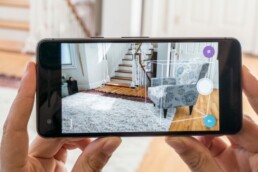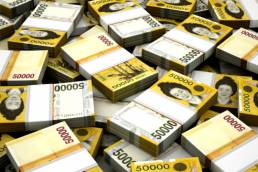South Korea is one of the most educated countries in the world. The South Korean education system is respected around the world and ranks at the top in the OECD’s Program for International Student Assessment (PISA). Students in Korea spend more time studying than in any other OECD country. This has led to South Korea having a literacy rate of pretty much 100%. Education plays a major role in Korea when it comes to social mobility, future income, social status, and positions of power. For example, the highest positions in government and corporations are dominated by those who have graduated from the top 3 Universities in Korea (SKY). However, all this studying has not led to more jobs in Korea but rather a high youth unemployment rate.
In addition, parents in Korea feel Korea’s public education system is not adequate enough. Therefore, they are forced to look towards private education. Private Education is a $20 billion industry in South Korea. This figure is doubled if unreported tutoring is included.
The pressure to get accepted into a top 3 university in Korea has been harmful to the Korean youth. It is estimated that 1 out of 4 Korean students has contemplated suicide. The South Korean education system needs to change. South Korea is creating legions of robotic workers and entrepreneurs who look towards the United States for innovative startup ideas. South Korea is not creating critical thinkers that change the world.
Where are Korea’s Nobel Prize Winners?
A good example is the low number of Nobel Prize winners coming out of Korea. Those who win Nobel Prizes are working in a field they are truly passionate about. They are innovative and tend to think outside the box.
Nobel Prizes by Country
- United States – 375
- United Kingdom – 131
- Germany – 108
- France – 69
- Sweden – 32
- Russia – 31
- Japan – 27
- Canada – 26
- Switzerland – 26
- Netherlands – 21
- Italy – 20
- Poland – 14
- Hungry – 13
- Australia – 12
- Belgium – 11
- India – 10
- South Africa – 10
- China – 8
- Spain – 8
- Ukraine – 6
- Czech Republic – 6
- Argentina – 5
- Egypt – 4
- Romania – 4
- Mexico – 3
- South Korea – 2 (Tied with 10 other countries)
So what can be done?
9 ways South Korea can improve its education system
High School Students Should Not Graduate Automatically

This is by far the biggest secret in South Korea. High School students will move on to the next grade no matter what. Yes, you heard me correctly. It doesn’t matter if they fail every test, or don’t learn a single thing, in South Korea all students will graduate. While Koreans know this, many foreigners living in Korea don’t. In the past, if high school students in Korea did not pay attention or were sleeping in class, teachers had the power to make them.
Make them? How? Teachers in Korea in the past were allowed to physically discipline students. However, starting in 2010, physical punishment in schools was outlawed. Ever since then teachers slowly lost the power to “make” students pay attention. Now if you walk into any public high school in Korea, you will see at least a few students per class sleeping.
Now of course I am not suggesting bringing back physical punishment in schools. However, Korea can’t keep graduating students no matter what they do. In the United States, if you don’t learn the minimum requirements you are left behind a grade. This is motivation enough for many students to give at least some effort. So why does the South Korean education system allow this? Simply, they want to show the outside world that South Korea has a high and impressive High School graduation rate compared to Western countries.
Allow Students in Korea to Skip Grades
Students who process at a faster level than other children should be allowed to proceed to the next grade. No student in each grade develops at the same speed. This will help balance out student comprehension levels per grade. Studies in the United States have shown that accelerated children do not suffer academically. Instead, accelerated students reported increased interest in and enthusiasm for learning which leads to a higher rate of academic satisfaction. Allowing students in Korea to skip ahead places them in learning environments with students who, while not their same age, are on par with them intellectually. This will give a path for gifted students to enter universities much earlier so there will be limited obstacles on their path to intellectual growth.
Suneung should count for only 25% toward your college acceptance

Suneung (Korea’s University Entrance Exam) takes place every second Tuesday of November. It is the SAT of South Korea and is currently the main factor Universities in Korea look at when accepting applicants. For example, in order to get into Seoul National University, a student will need to get a perfect score or only miss 1-2 questions max. Therefore, the majority of the time students are solely focused on doing well on this one particular exam. However, the test is tailored to students who have high memorization skills. The test does not focus much on communication and creativity which are important attributes for intellectual growth.
If you want robotic employees who can regurgitate facts they have learned from a textbook, Suneung is a great test for that. If you want innovative, creative, and critical-thinking employees, Suneung can’t be the be-all-end-all of the South Korean education system. This does not mean there should not be a national test, but it lowered to 25%.
Extracurricular Activities Should be the other 25%
The teen suicide rate in South Korea is very distressing. A major reason for this is the pressure to score well in Suneung/GPA. In South Korea, suicide is the leading cause of death for those aged 9-24. The reasons why Korean students commit suicide are broken down into these factors.
- School Admission (40%)
- Family Troubles (17%)
- Financial Troubles (17%)
- Loneliness (13%)
- Other (13%)
This has also contributed to the growing teenage drinking problem in Korea. When you lower the importance of the Suneung test and raise the value of extracurricular activities, you will raise the mental health of students in Korea. For example, why not put a value on students who can play a musical instrument, have painted an artwork displayed in a public space, have written an opinion piece for an online publication, or have volunteered for a charity? This way students can choose something they are interested in and passionate about rather than putting all their time and energy into studying for something most will not use in everyday working life.
Voucher Coupons for Hagwons (Private Learning Institutions) in Korea
South Korea needs to make access to education socially equitable. Korean parents spend thousands of dollars a year on Hagwons. Students in Korea attend these hagwons after school starting from as early as Elementary school (age 6). South Korea has the largest private tutoring industry in the world. The average Korean student spends up to 16 hours a day studying, only going home to sleep. In response, the South Korean government banned Hagwons from operating after 10 p.m.
However, parents have gone around this rule by hiring private tutors to teach their children at night at their homes. This allows rich parents a huge advantage over those who can’t afford to give their children private lessons and tutors. The high price of education is one of the main factors for the low birth rate in South Korea.
So what is the solution? Simple, offer low-income families vouchers for Hagwons. The Korean government already offers universal free half-day/full-day preschool programs for disadvantaged children from lower-income households. Why not apply this for Hagwons? For example, a 500,000 won/month voucher per child for Hagwons will give children the same access to private education as the rich. In addition, the added money towards private education in Korea will bring healthy competition among Hagwons to offer the best service possible.
Put a limit on how many SKY graduates a Company in Korea can hire

The competition to get into one of the top 3 Korean universities (SKY) is intense. SKY incorporates Seoul National University, Korea University, and Yonsei University. Korean government positions, as well as positions in some of the top corporations in Korea like Samsung and LG, are dominated by SKY graduates. Therefore, if you graduated from any other university in Korea, the difficulty in finding a job will be overwhelming. Currently, companies in Korea look more at where you graduated rather than if you have the skills to actually do the job.
So what would happen if there were limits to how many SKY graduates a company can have?
South Korean youth are now finding it harder and harder to secure quality jobs. There are not enough Samsung/LG jobs to go around. Putting a limit at 10% will force companies in Korea to look outside the small pool of SKY graduates to find talent. This will require companies to find innovative job interview processes such as auditions or small projects to find potential employees.
Get Rid of Teacher Employment Exams in Korea
Public schools in Korea need to get rid of teacher employment exams. The Korean government uses these tests to assign teachers to public schools. There is also a principal rotation system to make sure one principal is not at one school for too long. Each public school should have the right to employ teachers independently. In addition, principals should be allowed to stay at one school indefinitely to create the school they feel is best for the students. If another principal can reverse all you have done for the school, where is the motivation?
Get Rid of the teacher evaluation system in Korea

The teacher evaluation system in Korea does not allow teachers in Korea to be innovative. All the power lies in the Korean Federation of Teachers Associations and if they are wrong, it trickles down to every public school in Korea. Their own survey found that 80% of school teachers in Korea are not satisfied with their careers. When you have unmotivated teachers will unmotivated students and you have problems.
Let local provinces have their own education system
There are 8 provinces in South Korea. Therefore, South Korea has an opportunity to test new and innovative teaching methods in each province. Data can then be collected on what systems work and what systems don’t work. However, under the current system, one education system is applied to all schools across South Korea. Therefore there is no room for experimentation and no room to innovate. Therefore, without innovation, the Korean education system can not evolve and grow. Once a change occurs, we will start to see a rise in entrepreneurs in Korea who are not afraid to explore new ideas.
Popular
Related Posts






